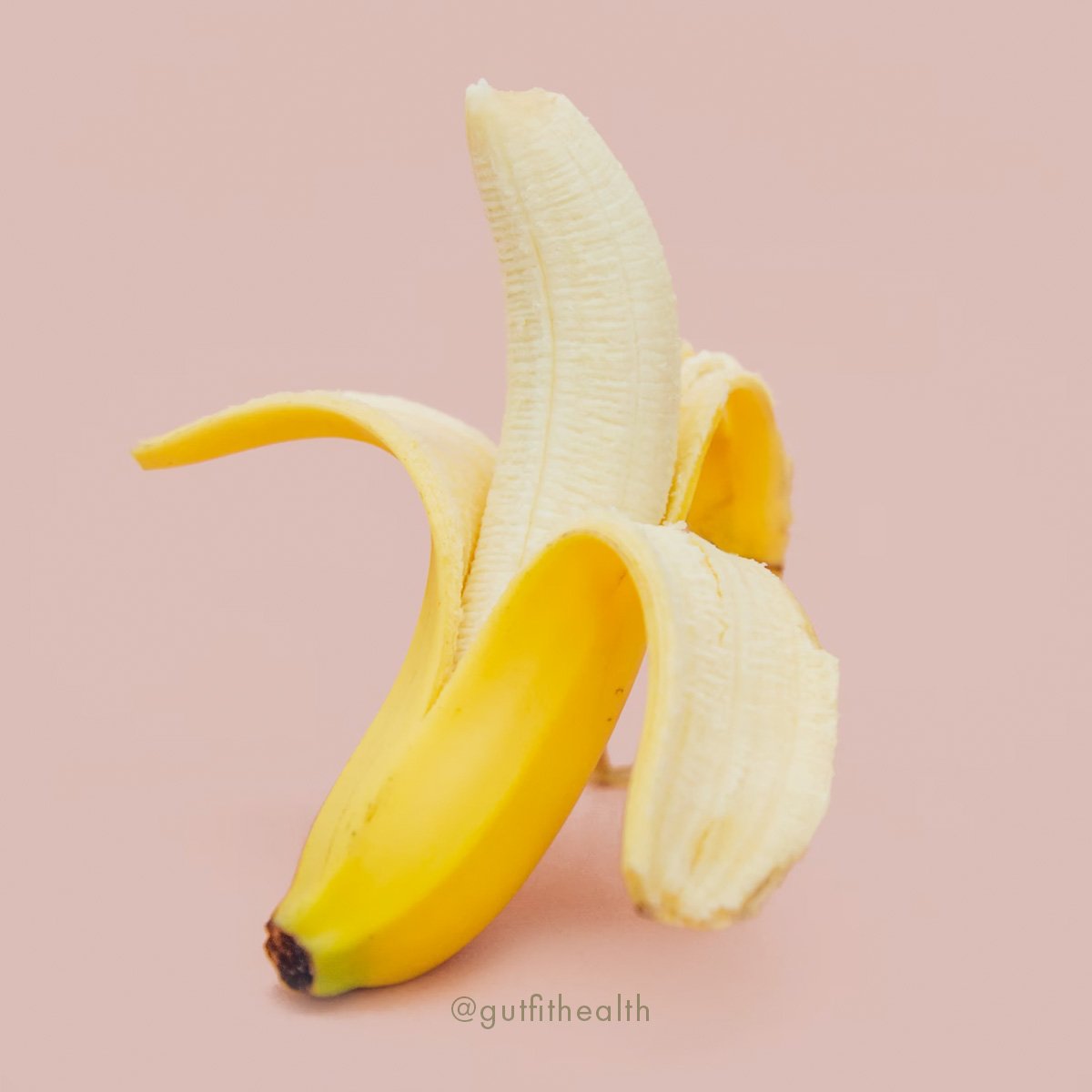Bananas and Gut Health
The humble banana is one of the most popular fruits, and have been eaten in various forms such as fresh, boiled and dried since ancient times.
It has been suggested that they are one the first food sources that ancient man ate (except for Adam and Eve). As we all know they are a healthy and convenient plant based snack that has numerous health benefits.
Bananas are a great source of many important vitamins and minerals such as vitamin A, vitamin C, potassium, calcium and iron. Importantly for gut health , bananas are high in fibre, with a medium size banana containing around 3.1-4.0 grams. The recommended daily fibre intake for an adult in Australia is 25-30 grams which is necessary to keep the body well.
The type of fibre you consume is important and green bananas contain resistant starch which is like a soluble fibre . Soluble fibre is a type of carbohydrate that is able to dissolve in a water solution. Before a banana ripens to its yellow color and is both green and a tough texture , the banana is almost completely starch. You may have noticed when eating a yellow banana that it is sweet tasting, this is because the amount of starch it contains as it ripens decreases and more simple sugars are produced. Resistant starch is a complex carbohydrate that is not digested in the small intestine , rather it goes through to the large intestine (colon) where it’s main job is to feed the bacteria that live in your intestine (the gut microbiome). When this process occurs, the beneficial bacteria produce short chain fats that are so important for digestive health. Resistant starch also has a role in large intestine transit regulation, if you have constipation or diarrhoea the starch can help promote more regular transit time of faecal matter. It should though be noted excessive eating of bananas can cause flatulence, bloating and loose stools, so it is suggested no more than 3-4 bananas a day is recommended.
Bananas are not only packed full of fibre but also prebiotics and probiotics, with them being a rich source of fructooligosaccharides. All of these compounds are important when you have digestive conditions like Irritable Bowel Syndrome.
Bananas contain sorbitol, this is a naturally occurring sugar alcohol. The body is unable to metabolise it quickly so if consumed in large amounts it can have a laxative effect.
As noted before bananas contain potassium that is a mineral that supports the movement of the faecal matter through the large intestine. Because of the potassium contained in bananas it can help a person with some mild electrolyte issues, this is why after you run a marathon they always have ripe bananas mid way through the run and after at the finish line.
The banana is part of the BRAT diet, which includes bananas, rice, applesauce and toast. This type of diet is used to make a persons stools firmer and can help a upset stomach.
So next time you look at your fruit bowl make sure it contains both green and yellow bananas. You can buy banana flour to cook with, and it makes delicious pancakes, so add it to your shopping list.

